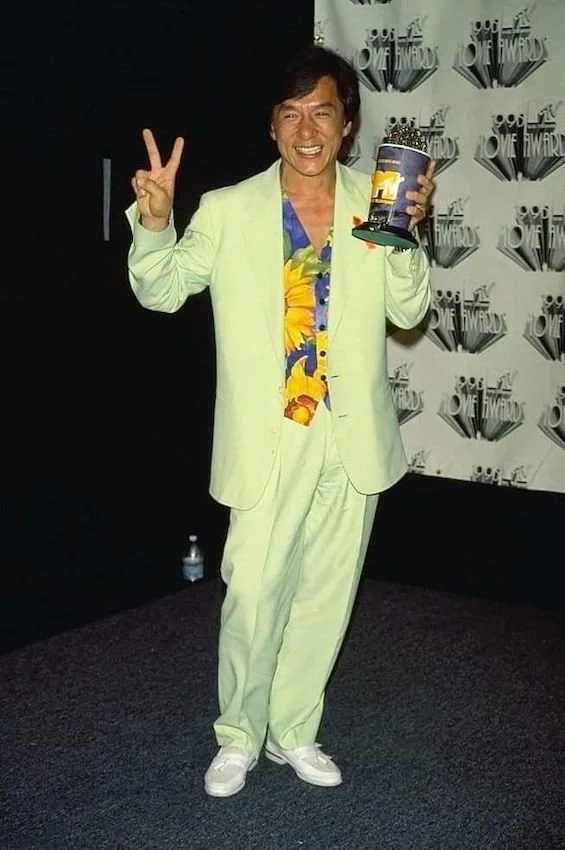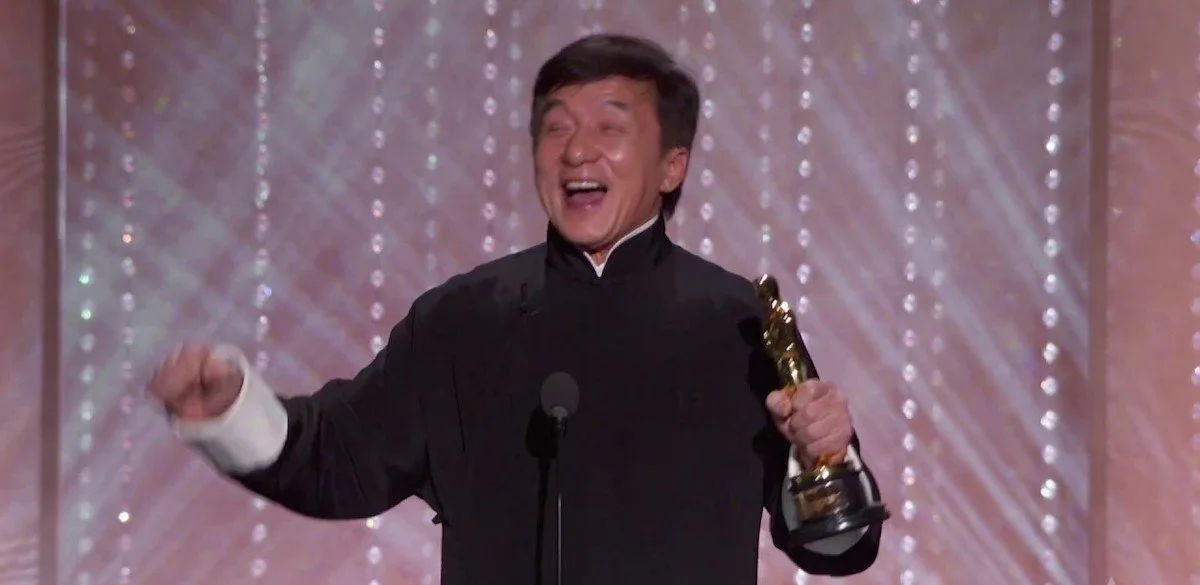Welcome to #JackieChanuary
January 17 - 21, 2022 at Neon Splatter will be dedicated to the cinematic dynamo known as Jackie Chan. The innovative impresario has been working in films since 1962 as an actor and stunt performer in over 140 titles. There are few performers that can rival Chan’s athleticism and cinematic fluency, often doing incredible stunts that are awe-inspiring but also serve a purpose about his character and the film surrounding him. This is why we are focusing on (just some of) his works this week. Chan’s massive filmography has made an even bigger impact on global filmmaking and will be influential on the action genre and beyond for generations to come.
Of course, like literally everyone else in the world, Chan is a complicated figure with his own blindspots and bits of controversy. It appears (as of this writing anyways) that the biggest issue that detracts from his stellar reputation is a sort of blind nationalism to the Chinese government. This often comes into play most terribly whenever there are situations in which citizens seek justice or independence—such as the various Hong Kong protests in the past decade or China’s refusal to recognize Taiwan as a country. In these instances, Chan often is found making statements in favor of the…less-than-stellar regime, almost on cue (and as if intentionally brought out by higher powers to persuade people and quell further dissidence).
Just as everyone is flawed, those flaws almost always have a larger reason for existing (in this case, a lifetime of indoctrination and many decades of success detached from average experiences). These reasons don’t provide absolution for the acts, but help bring them into better relief and understanding. So, while we know that Chan has certainly made errors and taken up hurtful stances, we won’t really be discussing those much while writing about his work and legacy.
Jackie Chan is a singular figure in cinema because he is almost a specific locus that connects film’s history with its future; not so much a point of demarcation between them, but instead the bridge used to help the continued evolution. Chan pulls from the traditions of the Beijing Opera (with its incorporation of dance, comedy, drama, and martial arts) and decades of Hong Kong filmmaking (including wuxia and updated kung fu forms), but also from the brilliant and ballsy pioneers of early film physical comedy of Buster Keaton, Harold Lloyd, and Charlie Chaplin.
Physicality transcends language and, in the right artist’s hands, an engaging story can be told just using optics, framing, and body movement—this is the tradition that Chan continues and the one he imparts on the next generation.
Upon breaking out (after decades toiling in the industry without much mainstream recognition outside of China), Jackie Chan then inspired a whole new generation of filmmakers and performers. The tempo of combat was sped up while signaling impact of action was clarified to bring in harder hitting fights moving at a much faster clip. Many western performers (actors, stuntpeople, fighters, and more) were inspired by Chan’s performances and traveled to Hong Kong to get a brutal education in the techniques of stunts and storytelling found in those iconic films like FIRST STRIKE, TWIN DRAGONS, and more.
Then those performers would go on to work with other filmmakers and performers and these lessons would mutate and grow as artists need to constantly evolve and innovate, just like Jackie Chan did 60 years ago.
For these reasons and more, we’re celebrating the superstar this week. Every post will be devoted to the icon, with contributors weighing in on some of their favorite performances and aspects of Chan through the years. So please join us for #JackieChanuary and spread the word on social media as this promises to be a lot of fun.




